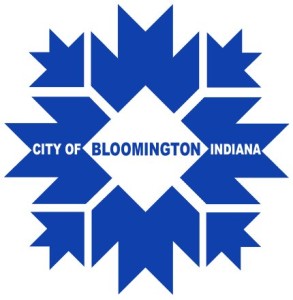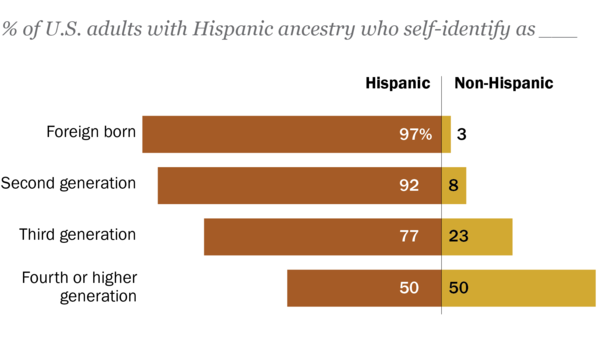 October 4, 2017
October 4, 2017
Members of the Bloomington Community,
For years the City of Bloomington Commission on Hispanic and Latino Affairs has served to identify and research the issues which impact the Hispanic/Latino populations in Bloomington, especially in the areas of health, education, public safety and cultural competency.
We support all Hispanics/Latinos including immigrants, refugees, and multi-generational U.S.-born folks who despite lifetimes in the U.S. are identified as Hispanic/Latino according to U.S. census. While the commission is not affiliated or motivated by any political party, we cannot deny that our work and sentiment is affected by the national rhetoric which vilifies and, in some cases, criminalizes the very existence of people in our community.
The decision to end DACA destabilizes the lives and futures for hundreds of thousands of folks who have no other crime than having been born outside of the lines you and I know as the U.S. border. The impact of the DACA repeal means splitting up families, interrupting communities and workplaces, and deporting adults and children to countries they have never really known. And for those of us who stay, we lose relationships, and we lose our emotional and economic investments in believing in and professing an American dream for all.
We hope to serve as a catalyst to promote positive public and private solutions to multi-faceted issues confronting Hispanic/Latino neighbors ensuring to document the resulting effects of action and inaction on our community. We unreservedly oppose the decision of the Trump Administration to end DACA especially without a defined and humane path forward for our neighbors, friends, and family.
The U.S. Chamber of Commerce has studied and proposed common sense immigration reform for years and published detailed analysis to dispel myths, which are used for political advantage. Opinions and false conclusions have been related as truths regarding “illegals” so we compiled a shortlist of facts for clarity.
Undocumented folks:
1. Do not receive free government healthcare. Undocumented folks do not qualify for Medicaid or the Healthy Indiana Plan.
2. Do not take jobs that would be filled by citizens. There is no correlation between high unemployment and immigration. Findings indicate undocumented folks become entrepreneurs – create jobs – at twice the rate as U.S.-born folks.
3. Do pay taxes. Taxes paid by undocumented folks proportionately to U.S.-born folks include property, excise, and sales tax. Also federal, state and local income taxes, Social Security and Medicare taxes are automatically deducted from paychecks just like everyone else. In 2013, undocumented folks contributed $11.6 billion in state and local taxes.
4. Are not eligible tax-funded benefit programs. Data from the Social Security Administration shows that in 2010 undocumented folks paid $13 billion in payroll taxes to Social Security and Medicare, benefits that are only accessible to citizens.
Additional findings by the U.S. Chamber of Commerce include:
– Immigrants do not drive down wages of U.S.-born workers.
– Immigrants have economically revitalized many communities.
– Immigrants do not cause crime rates to rise and are less likely to commit crime than U.S.-born individuals.
– Mass deportation of undocumented immigrants would severely damage the U.S. economy.
Facts and statistics aside, we must remember that DACA recipients are human beings and members of our community. DACA recipients have lived in the U.S. most of their lives – this is home. DACA recipients have families, jobs, and contributors to our community. To drive them away will not just damage our community as a whole but, at its base, it is cruel and inhumane.
Sincerely,
City of Bloomington Commission on Hispanic and Latino Affairs
CHLA Letter to HT October 4 2017
 Four months after hurricane María hit Puerto Rico, creating a vast path of destruction across the island and coinciding almost to the day with a series of major earthquakes in central and southern Mexico leaving millions of people without homes, there is need for reflecting on the long term consequences of natural disasters like these, beyond the material damage they caused. Some of the questions posed at this roundtable, organized by the Center for Latin American and Caribbean Studies in collaboration with the De pueblo a pueblo initiative, will be the following: what longterm strategies for rebuilding and development have been successful after preceding major disasters like the earthquake in Haiti (2010), or Hurricane Katrine? How have disasters contributed to reshaping the relationship between governments and local communities? What is the role of public and social media channels in reporting and encouraging, but also at times distorting a public conversation on regions and communities affected by natural disasters? What is “natural” and what is “human” or “social” about disasters like the recent hurricanes and earthquakes? What are the large-scale effects of natural disasters beyond the immediate destruction created, on the collective well-being of communities, and considering especially vulnerable populations such as the disabled, the elderly, and children?
Four months after hurricane María hit Puerto Rico, creating a vast path of destruction across the island and coinciding almost to the day with a series of major earthquakes in central and southern Mexico leaving millions of people without homes, there is need for reflecting on the long term consequences of natural disasters like these, beyond the material damage they caused. Some of the questions posed at this roundtable, organized by the Center for Latin American and Caribbean Studies in collaboration with the De pueblo a pueblo initiative, will be the following: what longterm strategies for rebuilding and development have been successful after preceding major disasters like the earthquake in Haiti (2010), or Hurricane Katrine? How have disasters contributed to reshaping the relationship between governments and local communities? What is the role of public and social media channels in reporting and encouraging, but also at times distorting a public conversation on regions and communities affected by natural disasters? What is “natural” and what is “human” or “social” about disasters like the recent hurricanes and earthquakes? What are the large-scale effects of natural disasters beyond the immediate destruction created, on the collective well-being of communities, and considering especially vulnerable populations such as the disabled, the elderly, and children? AUSTIN, Ind.—Steering his white Dodge Ram while wearing a tan knit cap, a drab green Carhartt coat and a smear of brown livestock feed on his cheek, Terry Goodin jounced over frozen-hard mud toward his 100 head of beef cattle. “Make sure they’re all four legs down and not four legs up, in this kind of weather,” he told me in his southern Indiana drawl. The temperature overnight had dipped toward zero. Now, midmorning, it stood at 16 degrees. On the rear of his old pickup truck was a “Farmers For Goodin” bumper sticker, and rattling around his head were thoughts of what he was going to say the following week in a starkly different setting—up in Indianapolis, at the regal limestone capitol building, in his introductory speech as the leader of his caucus in the state legislature.
AUSTIN, Ind.—Steering his white Dodge Ram while wearing a tan knit cap, a drab green Carhartt coat and a smear of brown livestock feed on his cheek, Terry Goodin jounced over frozen-hard mud toward his 100 head of beef cattle. “Make sure they’re all four legs down and not four legs up, in this kind of weather,” he told me in his southern Indiana drawl. The temperature overnight had dipped toward zero. Now, midmorning, it stood at 16 degrees. On the rear of his old pickup truck was a “Farmers For Goodin” bumper sticker, and rattling around his head were thoughts of what he was going to say the following week in a starkly different setting—up in Indianapolis, at the regal limestone capitol building, in his introductory speech as the leader of his caucus in the state legislature. Latinos are one of the fastest-growing racial or ethnic groups in the U.S. But a
Latinos are one of the fastest-growing racial or ethnic groups in the U.S. But a 

